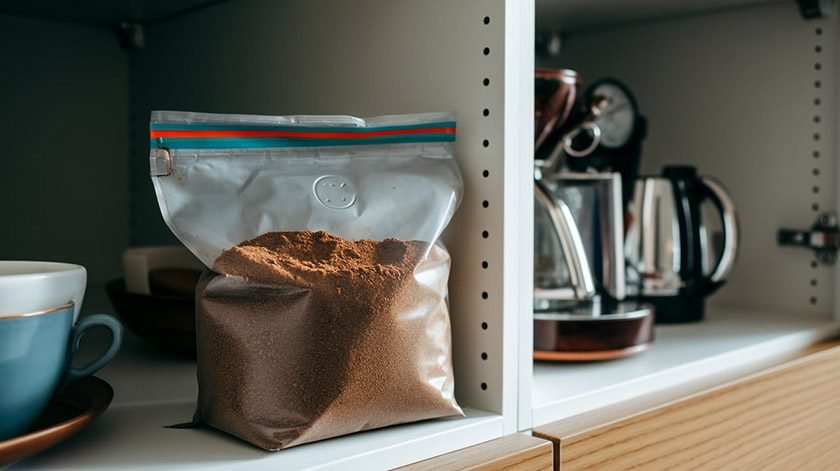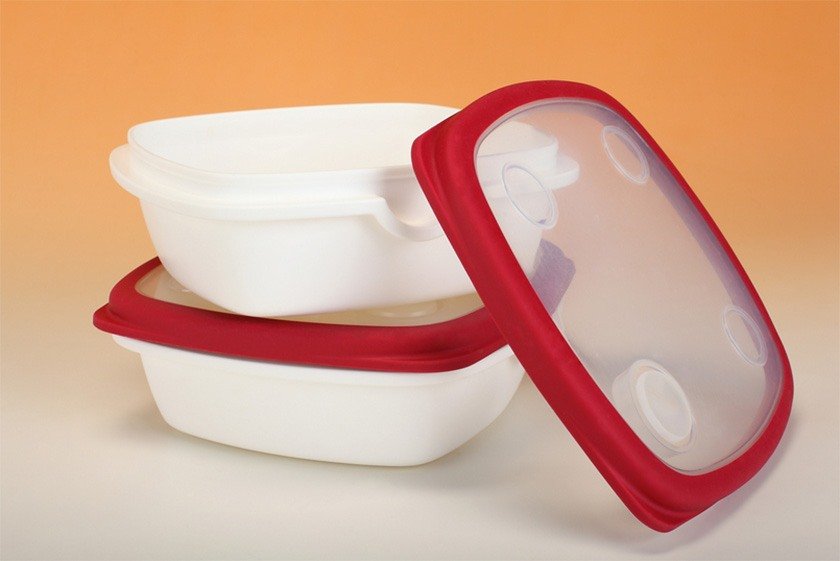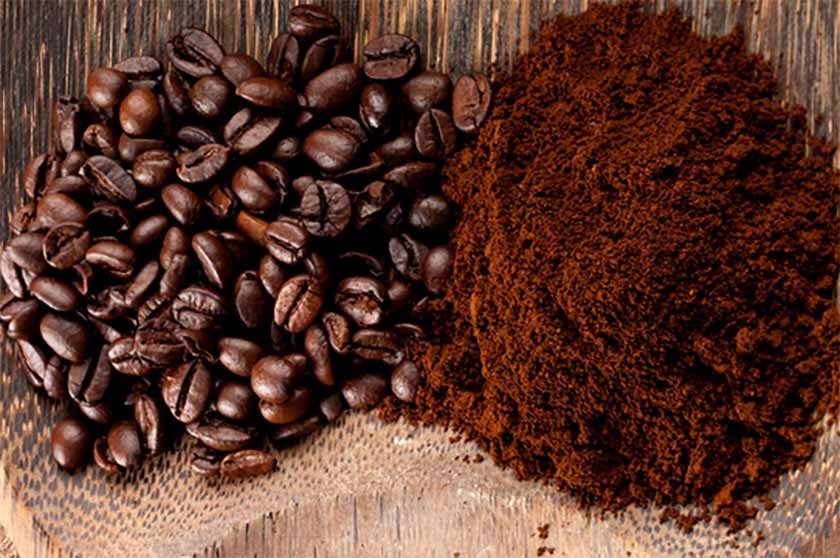Proper storage is essential for preserving the rich flavor and aroma of ground coffee, a cherished staple for many consumers. However, it is often overlooked how factors such as oxygen, moisture, light, and temperature can adversely affect its freshness.
This guide explores the best way to store ground coffee, outlines common mistakes to avoid, and provides insights into how long ground coffee can be stored before it loses its flavor and appeal. Learn how to ensure that your coffee remains as fresh and delightful as your initial brew.
Why Is Proper Storage Important for Ground Coffee?
The proper storage of ground coffee is essential for preserving its freshness and ensuring optimal flavor. Once coffee beans are ground, they become increasingly vulnerable to factors that can compromise their quality, including oxidation, moisture, light, and temperature fluctuations.
Inadequate storage solutions can significantly reduce the shelf life of ground coffee, resulting in a diminished aroma and flavor profile that coffee enthusiasts highly appreciate. Recognizing the importance of proper storage techniques can substantially enhance the coffee experience for both casual drinkers and connoisseurs.
What Factors Affect the Freshness of Ground Coffee?
Several critical factors influence the freshness of ground coffee, thereby affecting its overall flavor and aroma. Key considerations include moisture, which can result in clumping – light exposure, which may accelerate oxidation – and temperature, which plays a significant role in flavor retention.
A thorough understanding of how to manage these variables can substantially enhance the sensory qualities of the coffee experience.
1. Oxygen Exposure
 Oxygen exposure is a significant factor contributing to the degradation of ground coffee quality, leading to oxidation that adversely affects flavor preservation.
Oxygen exposure is a significant factor contributing to the degradation of ground coffee quality, leading to oxidation that adversely affects flavor preservation.
The best way to store ground coffee is crucial because when coffee is exposed to air, the compounds responsible for its aroma and taste begin to decompose, resulting in a stale brew.
This process not only compromises freshness but may also diminish the subtle nuances of a well-roasted bean, ultimately making each cup less enjoyable.
The chemical reactions initiated by oxygen create a cascade of degradation, causing the loss of volatile compounds that contribute to sweetness and complexity over time.
To address this issue, various packaging solutions have been developed, including sealed bags that minimize air contact and nitrogen flushing methods that replace oxygen with inert gas.
These approaches effectively preserve the integrity of the coffee for an extended period. Such strategies are essential in maintaining the rich, vibrant flavors that coffee enthusiasts seek.
2. Moisture
Moisture is a critical factor that can significantly affect the freshness of ground coffee, leading to the formation of clumps and altering the grind size. Elevated humidity levels create an environment that encourages mold growth and spoilage, ultimately compromising the quality of the coffee grounds.
When coffee absorbs moisture, it can result in uneven extraction during the brewing process, leading to an undesirable taste profile. This inconsistency can diminish the overall enjoyment of each cup, highlighting the paramount importance of proper storage techniques.
To mitigate moisture-related issues, utilizing airtight containers is essential, as they effectively maintain low humidity levels and preserve the freshness of coffee grounds for an extended period.
Additionally, it is advisable to store coffee in a cool, dark location, away from heat sources and direct sunlight, to further safeguard its flavor and aroma.
3. Light
Exposure to light can significantly degrade the flavor of ground coffee, as ultraviolet rays can break down the coffee’s aromatic compounds. Therefore, it is essential to store coffee in a dark environment to preserve its sensory characteristics and maintain optimal freshness.
To protect this cherished beverage from the adverse effects of light exposure, the use of dark-colored containers is highly advisable. Opaque jars or tightly sealed bags can effectively shield the coffee from both natural sunlight and artificial light, thereby prolonging its desirable flavors and aromas.
The best way to store ground coffee is by keeping it in a cool, dark pantry, or ideally, in an airtight container to minimize exposure and preserve freshness. Additionally, avoiding countertop displays, where light can infiltrate, ensures that the rich and robust profile of the coffee remains intact for each brew.
4. Temperature
Temperature significantly influences the freshness of ground coffee, as excessive heat can accelerate the loss of flavor, while cold temperatures may adversely affect texture. It is essential to store coffee in a consistently cool environment to ensure optimal flavor retention. However, refrigeration and freezing present their own unique challenges.
Although these cold storage methods can effectively slow down oxidation, they may also introduce moisture, which can compromise coffee quality. Furthermore, the temperature fluctuations that occur when coffee is repeatedly removed from and returned to cold storage can result in condensation forming inside the packaging.
For individuals who value their morning brew, it is advisable to store coffee beans or grounds in an opaque, airtight container located in a dark, cool pantry, rather than relying solely on refrigeration or freezing.
This approach effectively balances the need for optimal storage temperature with the preservation of the coffee’s intricate flavors and aromas.
What Is the Best Way to Store Ground Coffee for Freshness?
To ensure optimal freshness and flavor preservation of ground coffee, it is essential to utilize appropriate storage solutions. Selecting an airtight container and storing the coffee in a dark, cool environment can significantly extend its shelf life and enhance the overall sensory experience.
1. Keep It in an Airtight Container
 Storing ground coffee in an airtight container is one of the most effective methods for preventing oxidation and preserving flavor retention. This practice establishes a barrier against moisture, light, and air, thereby maintaining the quality of the coffee over time.
Storing ground coffee in an airtight container is one of the most effective methods for preventing oxidation and preserving flavor retention. This practice establishes a barrier against moisture, light, and air, thereby maintaining the quality of the coffee over time.
There are various types of airtight containers available, ranging from glass jars with rubber seals to vacuum-sealed canisters that completely eliminate air. Each type offers distinct advantages and may cater to different preferences or budgets.
When selecting the appropriate container, it is essential to consider factors such as size, material, and ease of access. For optimal coffee storage, it is advisable to choose containers that effectively block out light and provide a reliable seal.
Additionally, selecting a container with a wide opening facilitates easy scooping and reduces air exposure when accessing the coffee, ensuring that each cup remains as fresh as possible.
2. Store It in a Cool and Dry Place
Storing ground coffee in a cool and dry environment is essential for preserving its freshness and quality. By effectively managing the temperature and humidity in the storage area, coffee enthusiasts can significantly prolong the shelf life of their grounds.
Selecting appropriate storage locations is crucial for maintaining not only the aroma but also the rich flavors that characterize a superior cup of coffee.
The best way to store ground coffee is in a pantry, as it provides an ideal environment with a stable temperature, away from sunlight and heat sources like ovens or stoves.
Utilizing an airtight container can further protect the coffee from moisture and undesirable odors, enabling the coffee lover to appreciate the full range of flavors for weeks, if not months, following the initial purchase.
For individuals seeking to enhance their coffee preservation efforts, employing a dedicated coffee drawer or a temperature-controlled cabinet can significantly elevate the quality of the coffee experience.
3. Avoid Direct Sunlight
Avoiding direct sunlight is essential for the proper storage of ground coffee, as ultraviolet rays can lead to rapid degradation of flavor. Storing coffee in a dark environment safeguards its sensory characteristics and preserves the essential oils that contribute to its aroma.
For optimal freshness, it is crucial to store coffee beans in an airtight container, preferably made from opaque material. This approach prevents exposure to both light and air, which can further compromise quality.
Practically speaking, the ideal location for coffee storage is a cool, dark pantry rather than a countertop or a cabinet with windows. Utilizing a dedicated coffee canister specifically designed to provide an additional layer of protection is advisable.
By implementing these storage practices, the rich flavors of the coffee will remain intact for an extended period, allowing the true essence of the brew to be fully appreciated when it is time to enjoy a cup.
4. Use a Dark-Colored Container
Utilizing a dark-colored container is a highly effective strategy for protecting ground coffee from light exposure, which significantly aids in flavor preservation. Such containers effectively minimize light penetration, thereby safeguarding the coffee’s aroma and overall quality.
By efficiently blocking harmful light rays, these containers play a crucial role in prolonging the freshness of coffee, which can deteriorate rapidly when subjected to various environmental factors.
When paired with airtight seals – another essential element of proper coffee storage – dark-colored containers provide robust protection against the elements that compromise flavor integrity.
The best way to store ground coffee not only decelerates the oxidation process but also ensures that each cup delivers the rich, robust taste that coffee aficionados seek. For individuals who are serious about their coffee, incorporating dark storage solutions into their routine is an essential step toward achieving the perfect brew consistently.
What Are Some Common Mistakes in Storing Ground Coffee?
Numerous coffee enthusiasts often make common errors that adversely affect the freshness and quality of their ground coffee. These errors include:
- storing coffee in the refrigerator
- utilizing glass containers
- selecting pre-ground coffee rather than whole bean coffee
1. Storing It in the Fridge or Freezer
Storing ground coffee in the refrigerator or freezer can adversely affect its flavor retention and overall freshness. While some individuals believe that freezing coffee can help preserve it, the reality is that frequent temperature fluctuations upon removal can lead to moisture intrusion and subsequent flavor degradation.
When coffee is exposed to moisture, the essential oils within the beans may evaporate, resulting in a flat and stale taste. Additionally, the rapid cycling between cold and warm environments can create condensation, further compromising the quality of the coffee.
Rather than relying on refrigeration, it is advisable to store coffee in an airtight container at room temperature, away from direct sunlight and heat sources.
This method not only prevents exposure to moisture but also helps maintain the coffee’s aromatic compounds, ensuring a richer and more vibrant cup with each brewing.
2. Using a Glass Container
Utilizing a glass container for the storage of ground coffee may expose it to light and temperature fluctuations, ultimately resulting in flavor degradation.
Although glass is often regarded as an aesthetically pleasing storage solution, it fails to provide adequate protection against the environmental factors that influence coffee freshness.
The transparency of glass permits harmful light to penetrate, which can degrade the delicate oils and compounds essential to the coffee’s rich flavor profile. Furthermore, variations in temperature can expedite the oxidation process, thereby compromising the overall taste.
The best way to store ground coffee for quality preservation is to use storage containers that effectively block light and minimize air exposure.
Rather than relying on glass, selecting opaque, vacuum-sealed containers can significantly aid in preserving the aromatic freshness and vibrant flavors of coffee over extended periods.
3. Buying Pre-Ground Coffee
Opting for pre-ground coffee in place of whole bean coffee can significantly compromise the quality and freshness of the beverage. Ground coffee loses its aromatic compounds at a much faster rate than whole beans, thereby diminishing the overall coffee experience.
When coffee beans are ground, their surface area increases, which exposes them to air and accelerates the oxidation process. This loss of freshness can result in stale flavors and a lack of depth in the brewed cup.
By selecting whole bean coffee, consumers are assured of a vibrant, full-bodied cup that showcases the complex flavors inherent in freshly roasted beans.
Additionally, grinding coffee at home allows for customization in grind size, which can be tailored to the specific brewing method – whether it requires a coarse grind for a French press or a fine grind for espresso.
This flexibility in preparation enhances the overall coffee experience, ensuring that each cup is truly satisfying.
How Long Can Ground Coffee Be Stored?
The shelf life of ground coffee is influenced by various factors, including the roast level and storage conditions. Typically, ground coffee remains fresh for approximately one to two weeks after opening, whereas whole beans can maintain their freshness for up to a month or longer when stored under appropriate conditions.
1. Whole Beans vs Ground Coffee
 Whole beans generally possess a longer shelf life compared to ground coffee due to their intact structure, which aids in retaining freshness and flavor.
Whole beans generally possess a longer shelf life compared to ground coffee due to their intact structure, which aids in retaining freshness and flavor.
Ground coffee begins to lose its quality shortly after grinding, whereas whole beans can preserve their sensory characteristics for an extended duration when stored appropriately.
Adhering to proper storage practices, such as placing the beans in a cool, dark environment within an airtight container, significantly enhances the retention of quality. This preservation method ensures that the natural oils within the beans remain intact, resulting in a richer and more aromatic cup of coffee.
The best way to store ground coffee starts with grinding whole beans immediately before brewing, as this allows for the optimal release of the volatile compounds responsible for flavor and aroma, enabling coffee enthusiasts to experience a markedly superior taste. By choosing whole beans, individuals can significantly elevate their overall coffee experience. To maximize flavor, check out the best way to store coffee beans.
2. Roast Level
The roast level of coffee plays a significant role in its freshness and flavor retention capabilities. Lightly roasted coffee typically has a shorter shelf life, while dark roasts are known to last longer due to their reduced moisture content.
This distinction is particularly important for both baristas and home brewers who seek to optimize their coffee experience. Lighter roasts preserve more of the original characteristics of the bean, including floral and fruity notes that contribute to a vibrant cup.
However, these nuances can diminish rapidly, underscoring the importance of proper storage. Conversely, dark roasts, characterized by deeper caramelization, offer a more robust flavor profile and can withstand longer storage periods – however, they may also lose complexity over time.
A comprehensive understanding of these differences enables coffee enthusiasts to implement effective management techniques, such as utilizing airtight containers or refrigeration, to enhance longevity and preserve the desired taste profiles.
3. Storage Conditions
Storage conditions are crucial in determining the longevity of both ground coffee and whole beans. Factors such as temperature, humidity, and light exposure significantly influence the overall freshness and quality of the coffee.
To maintain the rich flavor and aroma of coffee, it is essential to store it in an environment that minimizes fluctuations. Ideally, coffee should be kept in an airtight container to protect it from moisture, which can lead to rapid staleness.
The choice of storage location is also vital – a cool, dark cupboard or pantry, away from direct sunlight and heat sources, is optimal for preserving freshness. It is advisable to avoid storing coffee in the refrigerator, as fluctuating temperatures and humidity can adversely affect its quality.
Instead, consider investing in a vacuum-sealed container or a bag equipped with a one-way valve, which allows gases to escape while preventing external air from entering.
By implementing these straightforward yet effective measures, coffee enthusiasts can discover the best way to store ground coffee and enjoy each cup as if it were freshly brewed. Scroll to the bottom for more information in our FAQ section.
The best way to store ground coffee for freshness is in an airtight container in a cool, dark place. This will help to preserve its flavor and aroma.
No, storing ground coffee in the fridge or freezer can actually cause it to lose its flavor and absorb unwanted odors from other foods. It is best to store it at room temperature.
Ground coffee can be stored for up to 2 weeks for maximum freshness. After that, the flavor and aroma may start to deteriorate.
Whole beans are the best option for freshness as they have a longer shelf life. However, if you prefer the convenience of pre-ground coffee, just make sure to store it properly to maintain its freshness.
No, the original coffee bag is not designed for long-term storage. It is best to transfer the ground coffee to an airtight container for better freshness.
If you only need to store ground coffee for a few days, it is okay to temporarily store it in the fridge or freezer. Just make sure it is in an airtight container and bring it back to room temperature before brewing.

